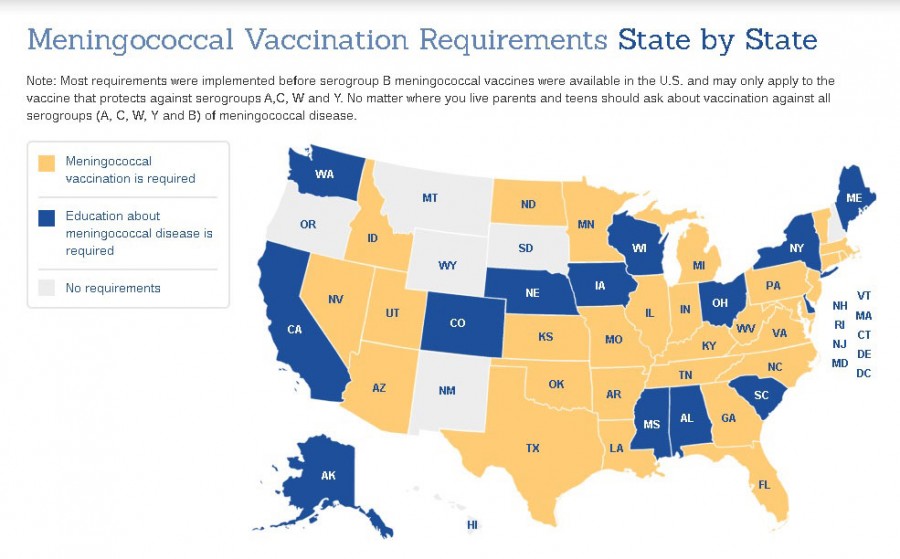No one is immune to these requirements
Missouri has passed a new law requiring all public school eighth graders and seniors to receive a meningococcal vaccine.
More stories from Mackenzie Morris
National Meningitis Association
Twenty eight of the 50 states require the meningococcal vaccine. Missouri will begin enforcing this law in schools during the 2016-2017 school year.
Recently, the state of Missouri has implemented a law that requires all incoming eighth graders and high school seniors attending a public school to receive a meningococcal vaccine before the 2016-2017 school year. Missouri is just one of half of the states in our country who have begun to implement this new requirement.
The Francis Howell School District will, of course, be enforcing this law because of the dangers posed by the infection.
According to the Center for Disease Control, meningococcal is a severe bacterial infection of the bloodstream that causes a high fever, headaches, neck stiffness, nausea, and drowsiness. If not treated properly, it results in death 10 to 15 percent of the time.
This dangerous disease has increased to 600-1000 cases a year, 21 percent of them occurring in people 11 to 24 years of age (National meningitis association). Missouri hopes to decrease these numbers by implementing this law.
Since it is a Federal law, not simply a school rule, the administrators will enforce this to the best of their abilities. Mrs. Keri Prest and Christy Gerling, Francis Howell Central’s school nurses, keep the records of which students have or have not received the necessary vaccines.
“We send them home,” Prest said in regards to actions taken when students have not received their vaccines.
“They can’t come to school if they aren’t immunized,” Gerling said.
Keeping kids home for lack of vaccination is for a simple reason: if students are not protected against the disease, it can spread to others who are not vaccinated or, in rare cases, the strand of the infection can alter and spread to people who are vaccinated, says the Center for Disease Control.
The state uses these facts to determine which diseases pose the greatest threat to students’ health. This allows the state to choose which vaccinations should be required to attend a public school and preserve the wellbeing of the state’s youth.
Your donation will support the student journalists of Francis Howell Central High School. Your contribution will allow us to purchase equipment and cover our annual website hosting costs. FHCToday.com and our subsequent publications are dedicated to the students by the students. We hope you consider donating to allow us to continue our mission of a connected and well-informed student body.













